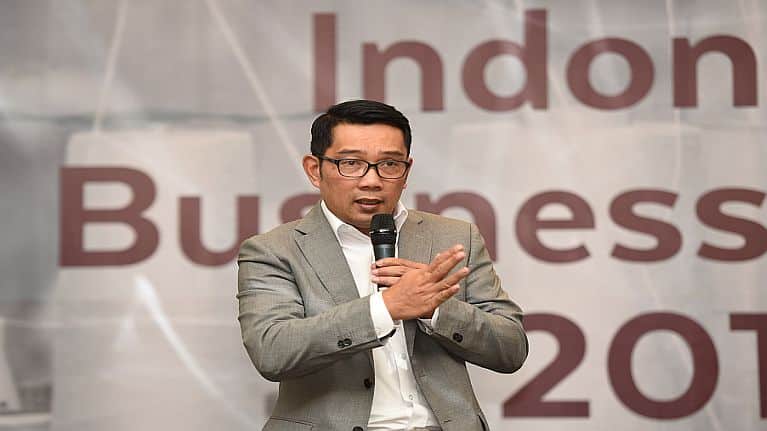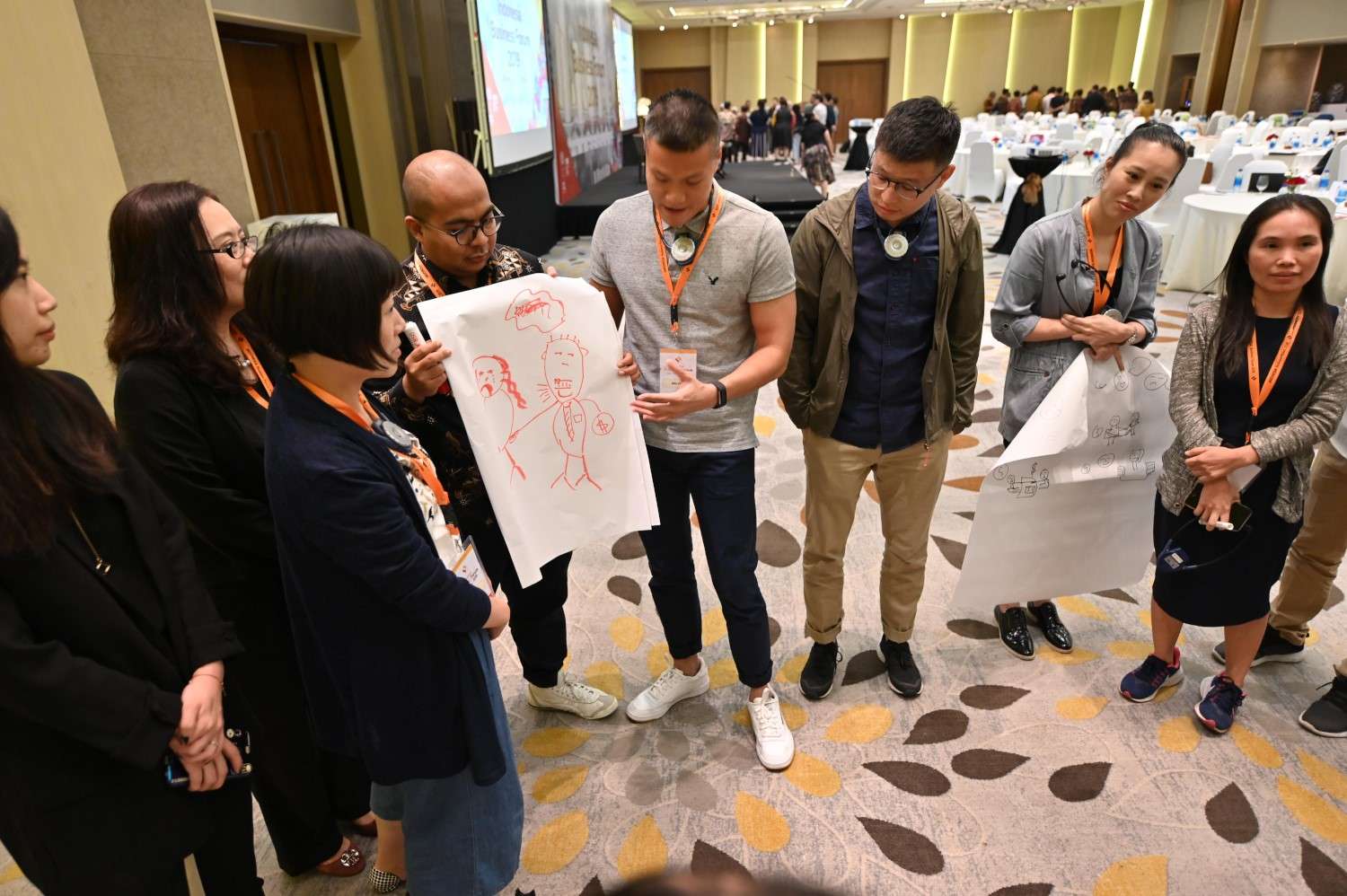Ridwan Kamil, Governor of West Java, participated in the interactive session of the ILO’s BWI annual Business Forum in Jakarta. He shared his vision and programme to continue strengthening the business competitiveness of the West Java Province.
News | Jakarta, Indonesia | 08 November 2019
Human resources development, state bureaucracy reform, industrial zone development and stronger worker-management cooperation were the four main visions presented by Ridwan Kamil, Governor of West Java, before 150 representatives of the garment industry from national and international of the annual Indonesia Business Forum held from 30-31 October in Jakarta.

Ridwan spoke at the Forum organised by the ILO through its Better Work Indonesia (BWI) programme, an important Forum which invites hundreds of national and international garment industry actors in Indonesian every year, including partners from governments, employer associations, trade unions as well as international brands and suppliers. The ILO flagship programme Better Work annually reviews progress made in the garment industry, shares successful and good practices and highlights the importance of social dialogue to address various labour issues in the garment sector.
“We focus on digitalization as a way to reduce costs and aim to be the fastest responding province to the digitalization era thus l helping the business to grow.”
The participation of Governor Ridwan in the Forum comes as a follow-up to the ongoing engagement by the ILO’s BWI programme with the government of West Java aimed at jointly addressing labour related issues in the garment and textile industry, including those related with the wage system and mechanisms. The ILO and the BWI programme were invited to present its recommendation on further harmonizing and simplifying Indonesia’s wage policy last August at the West Java tripartite discussion titled “Future Search Dialogue” in Bandung.
Although the Province of West Java is known as the biggest producer for garment and textile products for both export and domestic consumption, West Java is facing difficulties in maintaining the competitiveness of a sector that is, at the worldwide level, suffering a contraction.

“As the closest area from the capital city of Jakarta, we focus on maintaining our collaboration with industries, particularly garment industries, and on building the readiness of our communities to respond to the industrial revolution,” stated Ridwan in the interactive session of the Forum.
In terms of human resources development, he discussed about the importance of greater involvement of the industries to reduce skills mismatches and to ensure graduates of vocational schools to have skills that are relevant to the needs of the industry. “The industry should take a greater role by getting involved in the development of curricula and practical teaching programme,” he said.
“We are developing designated industrial areas that are more suitable for industries to grow. Thus, it will be easy for industries either it is labour intensive or high-capital intensive to choose their zones and be productive with their business.”
To better service the needs of the industries and respond to relocations of some factories from West Java, Ridwan said that the provincial administration has taken some actions to make business permit faster, reduce costs and to be less bureaucratic. “We focus on digitalization as a way to reduce costs and aim to be the fastest responding province to the digitalization era thus l helping the business to grow,” he stated.
An industrial zone, he added, is now being developed named Rebana Golden Triangle, aimed to support the needs of the industry. “The first industrial zone in the country that is located nearby both seaport and airport. This will be help industries to reduce their costs and improve their productivity.”
“The government only acts as a mediator, but both employers and workers should strengthen the bipartite dialogue. Through an effective dialogue and by understanding the needs of both parties we can reach harmonious employment relations and productive enterprises.”
To promote better labour-management cooperation, he emphasized the importance of strong communication and dialogue between employers and workers. In many countries, a bipartite dialogue has been proven as the strong tool to manage conflicts and reach agreements.
“The government only acts as a mediator, but both employers and workers should strengthen the bipartite dialogue. Through an effective dialogue and by understanding the needs of both parties we can reach harmonious employment relations and productive enterprises,” he concluded.